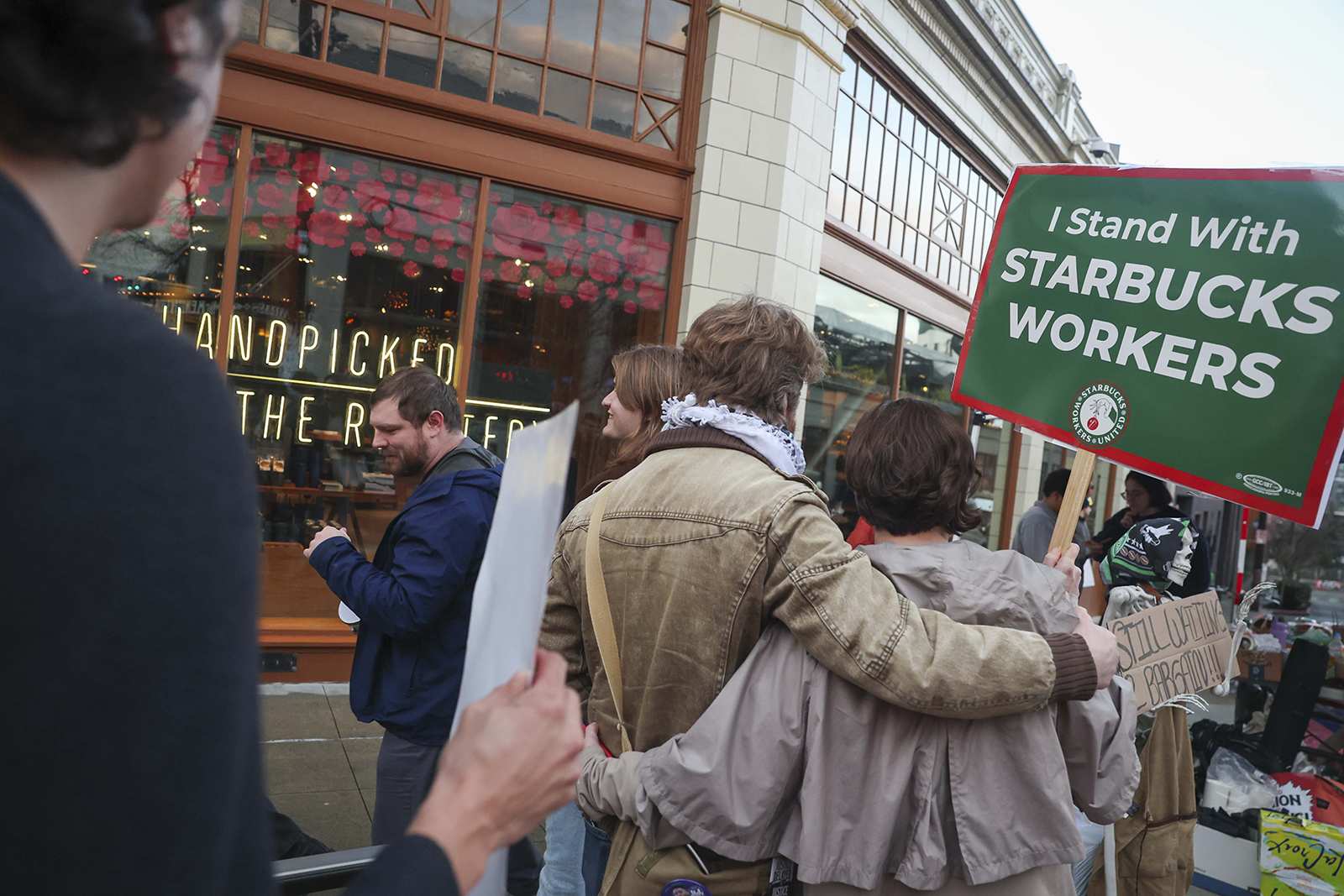Starbucks Baristas Strike: A Growing National Movement
As Starbucks employees across multiple American cities stage walkouts, we explore the roots of this labor unrest, the actions of the Starbucks Workers United, and the potential implications for the broader labor market.
Published December 26, 2024 - 00:12am

Image recovered from americanmilitarynews.com
In the midst of the festive season, a growing wave of labor unrest has emerged across Starbucks locations in the United States, where thousands of baristas are engaging in strikes demanding better working conditions. As of the most recent reports, the strike has spread to several key cities, including Denver, Pittsburgh, Columbus, Chicago, Los Angeles, and Seattle. These actions were organized by Starbucks Workers United, a union representing over 10,000 company employees, and are aimed at drawing attention to the ongoing labor disputes with Starbucks Corp.
In a statement, Starbucks Workers United highlighted that the strikes would continue to expand, enlisting employees from additional locations until the eve of Christmas unless Starbucks addresses their grievances related to unfair labor practices and insufficient economic proposals. This action is coordinated to coincide with a period critical for Starbucks, as the company typically sees increased sales in both drinks and gift cards.
According to the union, the impasse was intensified after negotiations broke down, with the company reportedly failing to offer any immediate salary increments or adequately address staffing shortages that leave many employees overwhelmed, especially with complex orders through the mobile app. Union representatives argue that the company's failure to negotiate in good faith represents a breach of earlier commitments, contributing to the workers' decision to strike.
Despite these strikes, Starbucks spokesperson Phil Gee claimed that the operational impact is limited to a 'small handful' of US stores while expressing the company's willingness to negotiate. Phil emphasized the company's respect for lawful strike activity but maintained that productive negotiations require the union to return to the table rather than walking away from discussions.
Globally, interest in the Starbucks strike has surged, with consumers consistently showing solidarity with the striking baristas. Furthermore, this labor movement reflects a larger trend within the United States, where workers from varied sectors increasingly push for improved wages and working conditions. Starbucks CEO Brian Niccol reiterated the firm's openness to negotiations, yet the union reportedly remains skeptical of reaching a fair agreement under current circumstances.
The strike not only underscores the escalating labor tensions at Starbucks but also symbolizes a broader struggle for labor rights in the critical service industry. As baristas continue to demand fair wages and better work conditions, this movement could set significant precedents within and beyond the food and hospitality sectors.
With the labor actions ongoing, there is a palpable anticipation surrounding their conclusion and what ramifications they might hold for other labor organizations across different sectors in the US economy. As these protests illustrate a growing willingness among workers to demand equitable treatment, they spotlight labor rights at a pivotal juncture in the landscape of employment relations in America.






